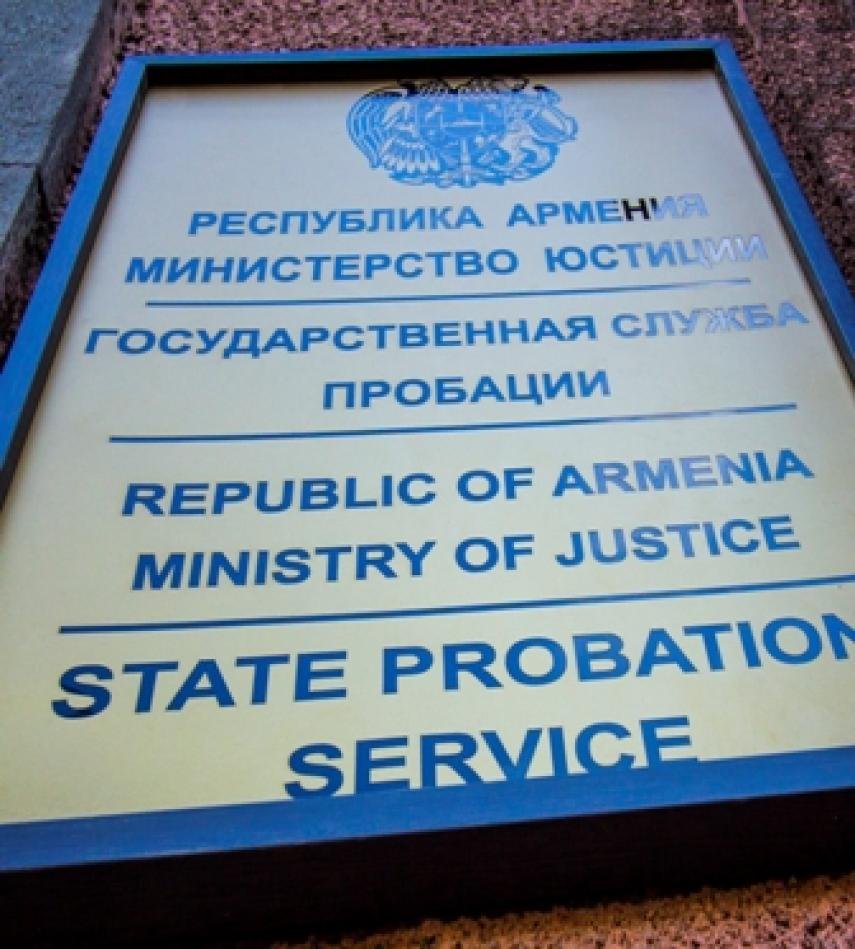NON-GOVERNMENTAL ORGANIZATION
Rehabilitation programmes for probationers

Recently as a result of round tables and workshops, the Civil Society Institute gathered various views of the representatives of relevant public institutions, civil society organizations as well as international organizations on the current capacity of the Service to carry out its functions and the need to ensure cooperation, especially in the area of rehabilitation programmes to probationers.
Prior to the establishment of the service, its predecessor - Alternative Sanctions Enforcement Division (hereinafter - ASED) of the Penitentiary Department under the MoJ was not supposed to do rehabilitation of offenders but rather to only supervise them. As the Service was established on the basis of ASED, it means that no infrastructure exists to start doing re-socialization of offenders and provide them with rehabilitation programmes. Unless such mechanism is in place, it would not possible to work effectively in preventing reoffending.
According to the Law on Probation, a probation officer is supposed to assess risk and needs of every probationer immediately after the latter enters the orbit of the Service. The Service is supposed to work with the following categories: accused/defendants to whom alternative measures of restraint are applied; those convicted to alternative sanctions; those in relation to whom the sentence has conditionally been suspended (on probation) or deferred, those released on parole with supervision, as well as those in relation to whom reports are drafted or mediation is carried out. To compare, the ASED was supposed to supervise those convicted to alternative sanctions; those in relation to whom the sentence has conditionally been suspended (on probation) or deferred, those released on parole with supervision. The Law not only expanded the categories of offenders but also the tasked the Probation service to work with offenders both in pre-trial, trial, penitentiary and post-penitentiary phases. In all these phases the Service is supposed to be able to assist probationers and provide rehabilitation programmes.
However, the Law is silent on how these programmes will be delivered. According to the Concept Note on Establishment of Probation Service in Armenia, a possibility to outsource some services to NGOs was envisaged. However, at the time of writing no outsourcing has taken place and it is expected that the Service itself should provide such services. At the moment this is not possible as the Service lacks both staff and technical capacity to deliver any rehabilitation programmes.
However, there is no limitation on referral to other service-providers, including to NGOs. Mapping of service providers, especially in the regions of Armenia, and creating a properly working referral mechanism among all relevant institutions and organizations is considered indispensible not only by civil society sector, but also by the relevant state agencies. During the event dedicated to the development of the State Probation Service, high rank representatives of the Ministry of Social Affairs called for consolidation of efforts and cooperation in the area of provision of social services. It was proposed to use already existing mechanisms, such as, for example, National and Local Networks created by the Ministry of Social Affairs of all service-provides and organizations working with the target groups of the Ministry.
It is also may be very helpful to establish a mechanism of exchange of information on beneficiaries, subject to confidentiality clause and requirements on the right to privacy to ensure that the resources of various state bodies working with the same beneficiary are not in a cost-efficient manner, not to duplicate each other.
According to the opinions of the experts in the field the following services are most in need at the moment: counseling and therapy; special programmes for anger management, problem-solving skills, temporary shelter for homeless offenders, vocational training and support in improving employment opportunities, etc. Work of social workers with the probationers and their families is important to understand their needs better and offer more effective response.
It is also important to note that while in some cases participation in programmes will be voluntarily, in others it may be imposed by court. The Law on Probation specifically includes counseling with psychologist as a measure imposed by a court.
Another important point in relation to the Service is supposed to work with those released on parole or in post-penitentiary phase, it is key to create rehabilitation programmes in prisons, including pre-release. There are also good practice examples of pre-release programmes done by NGOs in prisons, in particular by CSI. Moreover, such programmes shall take into account vulnerability and special needs of various groups, including women, juveniles, people with disabilities, belonging to minorities, etc..
Summing up CSI’s main findings about the current opportunities of rehabilitation work with offenders the following important commentaries and recommendations may be made. It is important
- to undertake comprehensive mapping of actors delivering services in the community both nation-wide and locally;
- to create an effective referral mechanism including all relevant service providers (public institutions and NGOs);
- to develop rehabilitation programmes for probationers, such as anger management; problem solving skills; non-violent dispute-resolution, etc;
- to ensure access to high quality counseling services in community;
- to create shelter for probationers where they can have access to rehabilitation services as well
- to create vocational training opportunities for probationers on professions in need in the job market both by simplifying the procedure of the State Employment agency and installing workshops under the MoJ or short-term special programmes at public colleges;
- to envisage opportunities to outsource some of the services aimed at rehabilitation.
References
See: http://new.csi.am/en/point-of-view/2016/12/02/probation

